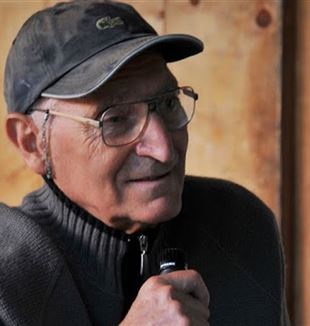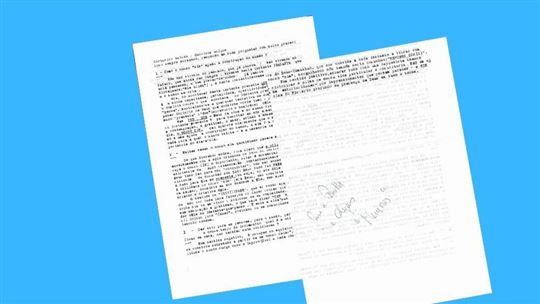
Bernareggi: God does everything to win us over
He has been in Brazil since the Sixties, "sent" by Fr. Giussani. The Italian missionary has been answering questions about the provocations of recent months, posed by his friend Rosetta, who has been in South America with him since day one.A few days ago, Fr. Pigi Bernareggi responded to his friend Rosetta Brambilla with a letter. Both Italian, they live in Belo Horizonte and arrived in Brazil as missionaries in the Sixties, guided by the life of Gioventù Studentesca and their encounter with Fr. Giussani. Rosetta posed Fr. Bernareggi some questions about the provocations of recent months. Here are his replies.
How does our "yes" help build the world?
We do not live in the past, which is already past, we do not live in the future, which has not yet arrived. We live in this present moment that is happening, and in the blink of an eye it is already past (as Soren Kierkegaard said); it is in this instantaneousness that life happens and the world is created.
Now, in the happening of this present instant, who is building? Is it my ability, genius, operability? No. I do not have dominion over what happens in the present instant, because it is something that “happens”, escaping any attempt to control it. Only the infinite power of God builds, creates everything: that is why it is called "present" ("his unexpected and admirable gift").
But why does the God of life and of the world do all this in our present moment? To arouse wonder, amazement, contemplation, gratitude, and love within us - that is, our Communion with Him, our yes.
From this, it becomes clear that our "yes" not only helps in the construction of the world, our yes is the true purpose for which the world exists, it is the essence of our daily human experience.
Often, our daily yes seems useless...
From what we said before, it is clear that the usefulness of our involvement in God's creative action in the passing instant (i.e. our yes) is important, indeed it is essential for the very existence of His creative action. In the instantaneousness of our experience, God does everything to "win us over”, to see us amazed, grateful, in harmony of communion with Him: God does everything for us. Our "yes" is everything for Him in the present (that is, in His act of giving us everything). The usefulness of our "yes" for God does not consist in doing; it consists in our giving ourselves to Him, in abandoning ourselves to His creative love.
The sense of "uselessness", which sometimes arises, is not born from having nothing to do, or from doing things that say nothing: it arises from living (alone or in a community...) without wonder, without admiration and gratitude, that is, "without memory" of His creative gesture in the passing instant. This is the "worldly" life: life with a thousand things to "do", alone or in a community, but without any amazement.
Being useful to people, to the world, seems to be a "doing". In this time of isolation, what is the usefulness of our being at home, in the most everyday tasks?
In a negative sense, it is to escape from the misunderstanding that "the world is built above all from our doing." The world emerges as new and unpredictable in every moment from the creative action of God-Communion, which invites us in every moment to vibrate with our "yes", immersing ourselves in this communion: "memores Domini".
In a positive sense, it is to face everything as an unforeseen possibility to tune into the climate of our particular circumstance and community life. Not based on the external - however impressive it may seem - but on the profound Mystery of God's presence in everything and in everyone.
Belo Horizonte, 15 May 2020